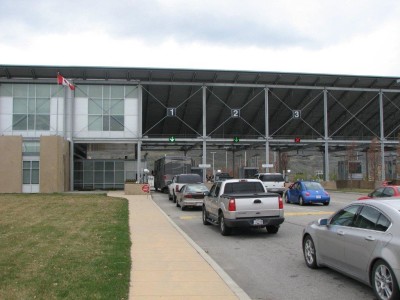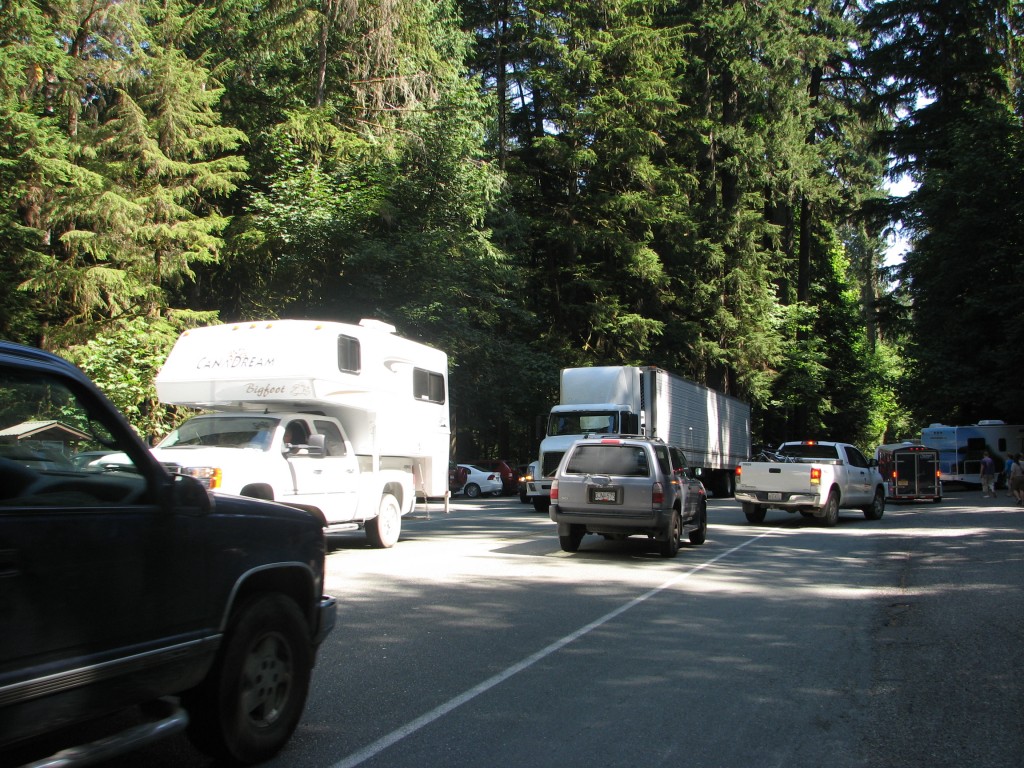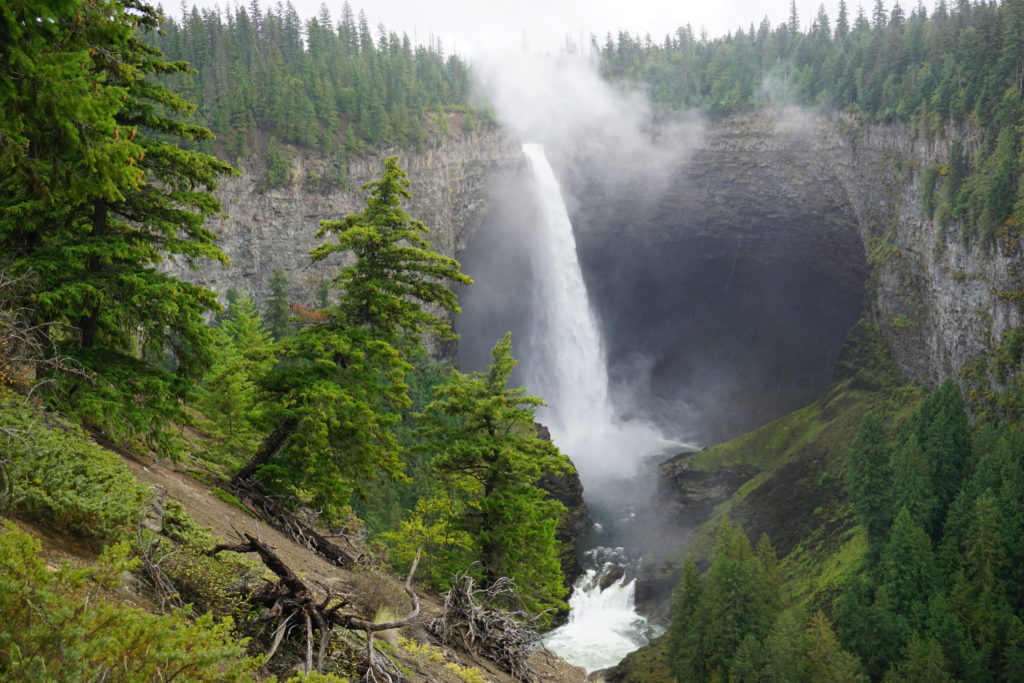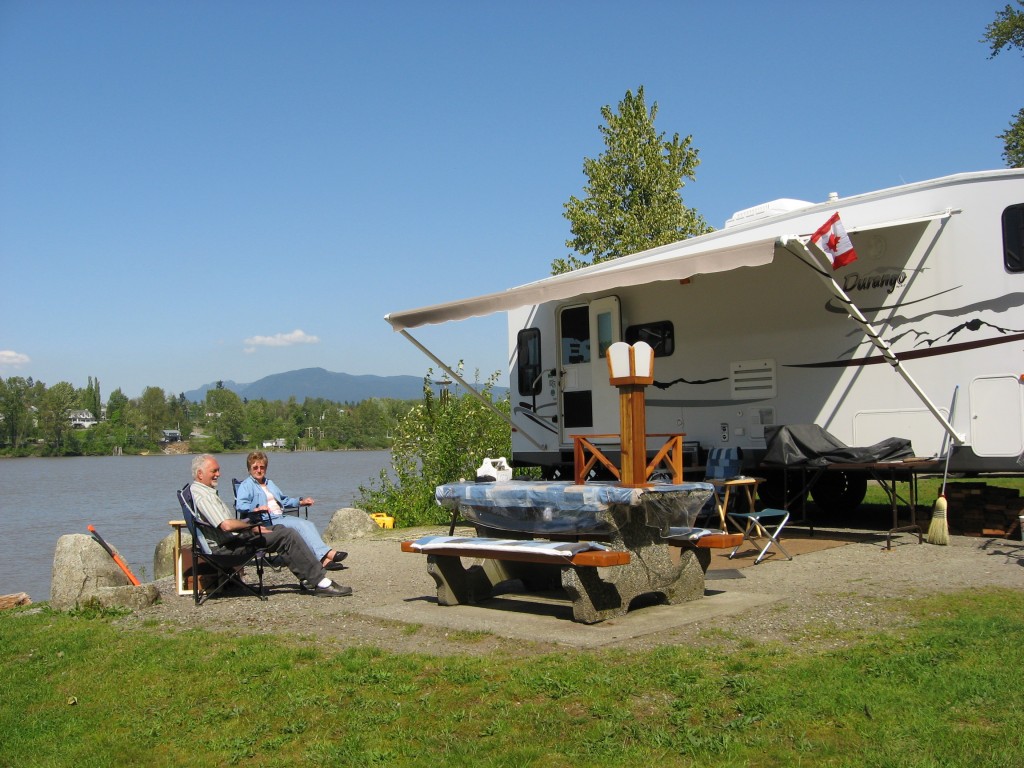Come to Canada in your RV – it’s easy and enjoy the beautiful scenery, welcoming people and exciting things to see and do.

If you have questions about coming to Canada in your Rv – you’re not alone.
RV in Canada to relax and enjoy our beautiful country. I hear discussions and concerns about our banking system, questions on how to cross the border, what food is available, languages, gun laws, safety and all types of other topics. Those are just a few that get asked often. Let me try and respond to some of those questions.
Yes, Canada and the United States are separate countries – be prepared for some of the differences.
It’s important to understand that United States and Canada are two very separate countries with different laws, governments and our money is sometimes called “funny money” but it’s legal tender. Yes, there are quite a few differences but there are just as many similarities and all foreign visitors are made to feel very welcome.

Crossing the Border between Canada and the United States
There aren’t any walls or fences between our two countries but you must cross the border through Canada Border Service Agency Crossing when you travel north into Canada and the US Customs and Border Protection when heading south.
Know what to expect in advance and be prepared that crossing the border should only take a few minutes. What is important is knowing what the laws are and by abiding by them you should soon be on your way.
*Previous Convictions
Any previous convictions may prevent visitors from entering the country to RV in Canada so check prior to arriving at the border. It doesn’t matter whether you’re touring Canada or just driving through on your way to Alaska you are subject to the Canadian laws and are not exempt.
Preparation prior to arriving at the border
Be Prepared
Gather everything you need ahead of time, put it all into a binder and have it ready just in case you need it. Many people are not prepared and are shocked if the agents want access to their units, which they’re allowed to do.
• Identification ~ The best identification to carry is a valid passport since it makes things much easier. If you’re a U.S. citizen, carry proof of citizenship such as a passport, birth certificate, a certificate of citizenship or naturalisation, a U.S. Permanent Resident Card, or a Certificate of Indian Status along with photo identification.
• Children & Pets ~If both custodial parents aren’t traveling with the child a consent letter may be required. Traveling with pets is governed by the Canadian Food Inspection Agency (Link below) and with the proper documents there won’t be any problems bringing your pet with you. Having your RV in Canada is probably the best way to travel with both children and pets.
• Food & Alcohol ~ It’s easy to forget what foods are in the RV especially if you live in it long term. Before crossing the border check with CBSA to see what the current restrictions are since laws change regularly and there are restrictions as to how much alcohol and tobacco you can bring into the country free of duty.
• Gun Laws ~ Canadians don’t carry guns and are not used to being exposed to them in their daily lives. It’s not that you can’t bring guns into Canada – you can. There are restrictions and by contacting CBSA and inquiring about importing firearms and weapons into Canada and obtaining authorisation you shouldn’t have any problems.
Banking
Canadian money is colourful and coins are used in place of one and two dollar bills. (Loonies -$1 and Toonies -$2). Pennies aren’t used and prices are rounded up or down to the closest nickel.
Most retail outlets will accept US dollars but they may take it at par, which is not good when the US dollar is higher than the Canadian dollar. It’s best to exchange your money at a bank or use your debit or credit card to get that day’s exchange rate.
Bank machines / ATM outlets are in most places and easy to use although there is usually a fee, which may vary and charged to your account and dispense Canadian funds at the current exchange rate. Credit cards are widely used but check with your credit card company to see what their rates are and let them know you are traveling.
Driving laws
Everyone must have a current driver’s licence and proof of auto insurance ~ U.S. licences and insurance is acceptable when driving a car or when you RV in Canada.
Speed Limits
Speed limits are in metric so instead of seeing signs reading 60 mph you may see 100 km/hr. so don’t make the mistake of thinking that 100 km/hr. means you need to speed up – because you don’t.
Distracted driving laws are implemented right across the country but each province or territory may have a few differences. Cell phones can only be used ‘hands free’ when driving.
Seat Belts are mandatory and children under 40 lbs. must be restrained in appropriate car seats or booster seats. Check with the provincial laws for where you are visiting because in some provinces it’s against the law to smoke in a vehicle if children are riding in it.

Camping/ RV in Canada
Canadian RV Parks and campgrounds come in a range of sizes and types, from 1st class to the very basic rustic site with plenty in between. Each province has beautiful parks and campgrounds offering outstanding sites and many recreational opportunities.
Thousands of privately owned campgrounds can be located through local tourism offices. Those who RV in Canada are usually pleasantly surprised at the range of campgrounds and parks available.
For help on locating campgrounds read my post on Campgrounds and RV Parks in Canada
English /French
English is the main language in Canada except in Quebec where French is spoken. However, Canada is a diverse country and you may hear languages from all over the world.
Safety
Canada is a very safe country but it’s no different than most other places where theft can happen if valuables are too visible and doors unlocked. Use common sense and be part of the 99% of travellers who RV in Canada and never encounter any problems.
Internet / Cell phone coverage
Most campgrounds and RV parks offer free Wi-Fi except in the provincial or federal campgrounds because they’re usually more remote. Most coffee shops and libraries offer Internet service and some of the larger communities have hot spots in their downtown cores. Cell phone coverage is good but prepare for little or no service in the more remote areas. Check with your provider for their fees for roaming out of the US.
Food – Groceries and Restaurants
There are major grocery stores everywhere and most foods bought in the US can also be found in Canada. Check out the farmer’s markets as you travel across the country and enjoy the locally grown produce.
Many of the major restaurant chains can be found here but this is your opportunity to try different options at any of the thousands of enticing ethnic and regional eateries.
4900 Miles across from west to east and there’s a lot to see in between.
Stretching 4900 miles across North America from the Atlantic Ocean on the east and the Pacific Ocean to the west visitors experience the rugged coastline of British Columbia, the wide-open spaces and wheat fields of the Prairie Provinces, the picturesque and historic Maritimes and the unique diversity of Quebec. The most comfortable and relaxing way to enjoy everything is to RV in Canada if you possibly can – it’s the best!

English is the main language
English is the main language in Canada except in Quebec where French is spoken. However, Canada is a diverse country and you may hear languages from all over the world.
The form of measurement in Canada is metric and is used for both liquid and dry weight measurement, distance and speed. Fuel is purchased in litres and distance and speed is measured in kilometres.
There is so much more to this immense country than just it’s size and visitors who slow down and take their time enjoy the many festivals, historic museums, diversified culture, endless recreation and rich history Canada has to offer.
Happy travels,
Carol Ann

Resources
Government of Canada: http://www.canada.ca/en/
US Customs and Border Protection: http://www.cbp.gov
Canadian Border Services: http://www.cbsa-asfc.gc.ca
Canadian Food Inspection Agency (traveling with pets) http://www.inspection.gc.ca/animals




Excellent information Carol Ann, thank you for providing this information.
Yes our Canada is a beautiful country and Americans RVers friends should definitely take advantage of our low dollar, safe, diversified, colourful country.
Thank you for your kind words! I agree with you – they definitely should enjoy every wonderful thing we have to offer. Take care.
Carol Ann